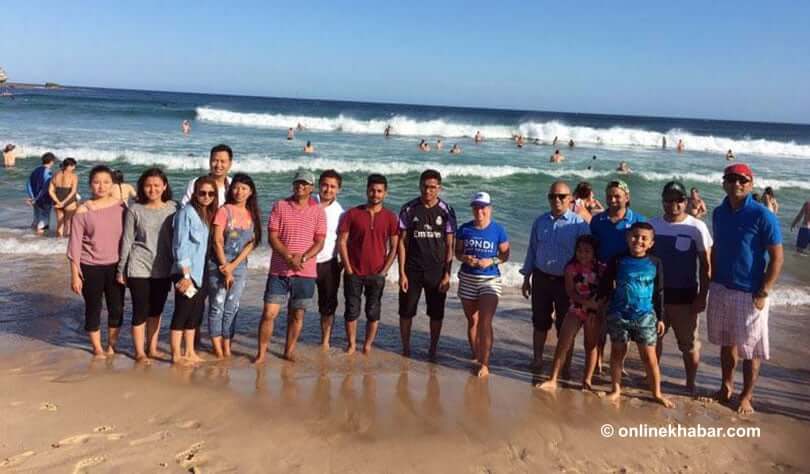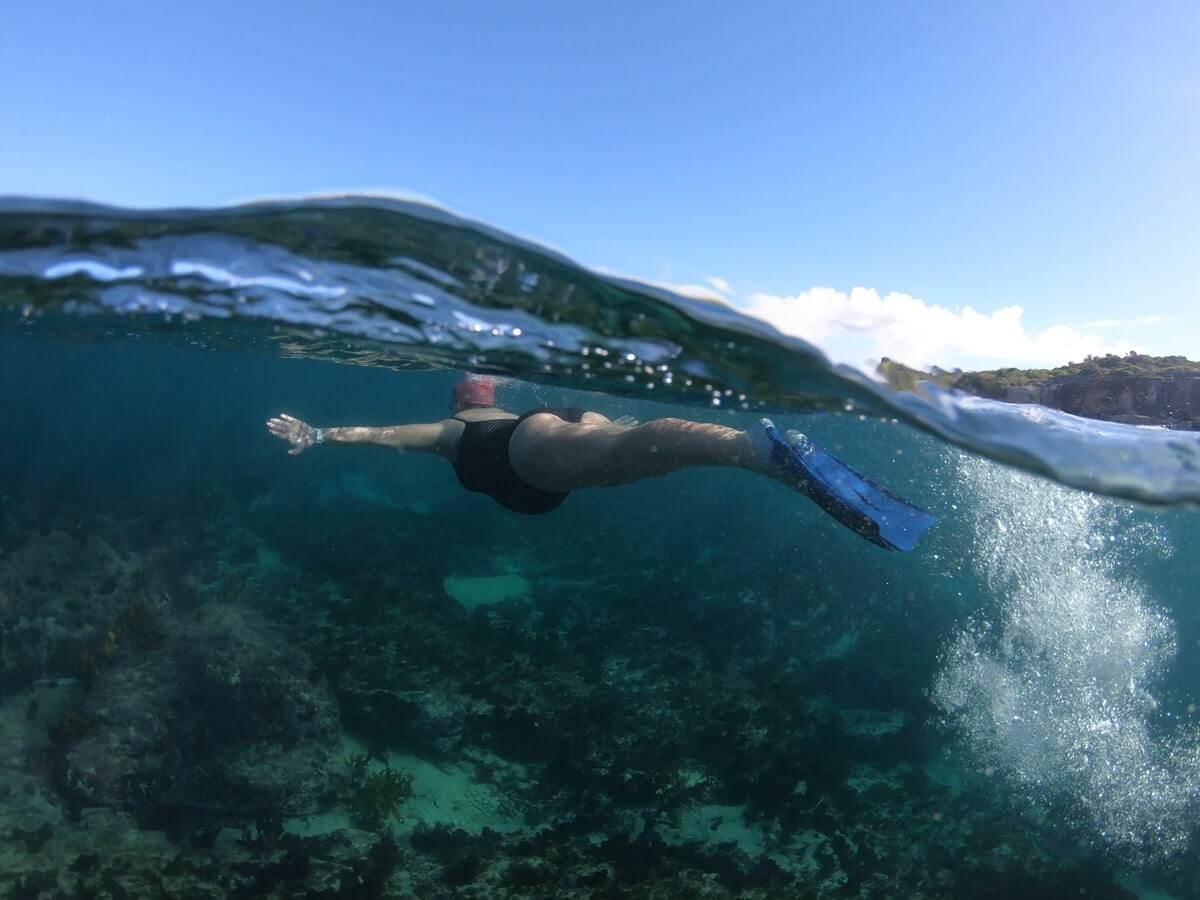The difference between ocean swimming and open water swimming
Open water swimming is ‘wild’ swimming that takes place in open bodies of water such as lakes, rivers and the ocean.
Open water swimming is a chance to ditch the black line and confines of a swimming pool and swim free as nature intended.
Open water swimming vs. Ocean swimming
 Technically ‘open water swimming’ is the over-arching name given to swimming in open bodies of water that includes the ocean.
Technically ‘open water swimming’ is the over-arching name given to swimming in open bodies of water that includes the ocean.
In Australia and New Zealand, owing to the vast coastlines and beach culture, ‘ocean swimming‘ has become the most common form of open water swimming and has, therefore, become the default type of open water swim event.
It is uncommon to hear of ‘open water swimming’ in Aus/NZ unless it’s in relation to the sport of open water swimming (i.e. 5km & 10km swims, usually run by traditional pool swimming organisations) or the swim leg of a triathlon.
Different skillsets
Swimming in open water requires a specific set of skills and knowledge not required in the pool.
OceanFit runs an Open Water Swimming clinic that teaches the knowledge and skills specific to open water swimming.
Here’s a summary of the types of things you need to be aware of when swimming in lakes, rivers and the ocean:
Open Water (General)
- Deeper water
- Moving water
- Cooler water
- Away from land
- Other users (particularly craft)
- Water quality
Lake/Dam
- Steep drop off
- Wind chop
- Curving shoreline
River
- Tidal
- Strong currents
- Inability to swim upstream (one-way swimming)
- Hidden submerged objects
- Natural features (rocks/waterfalls/rapids etc)
- Lack of total control of movement
Ocean
- Rip currents and other currents
- Tides
- Waves
- Marine life
- Beach/craft users
Swimming in open water can be one of the most liberating feelings you will ever have and can improve your health and wellbeing, appreciation of nature and social friendships.
Get into ocean and open water swimming today, join an OceanFit program to get you started.






Responses